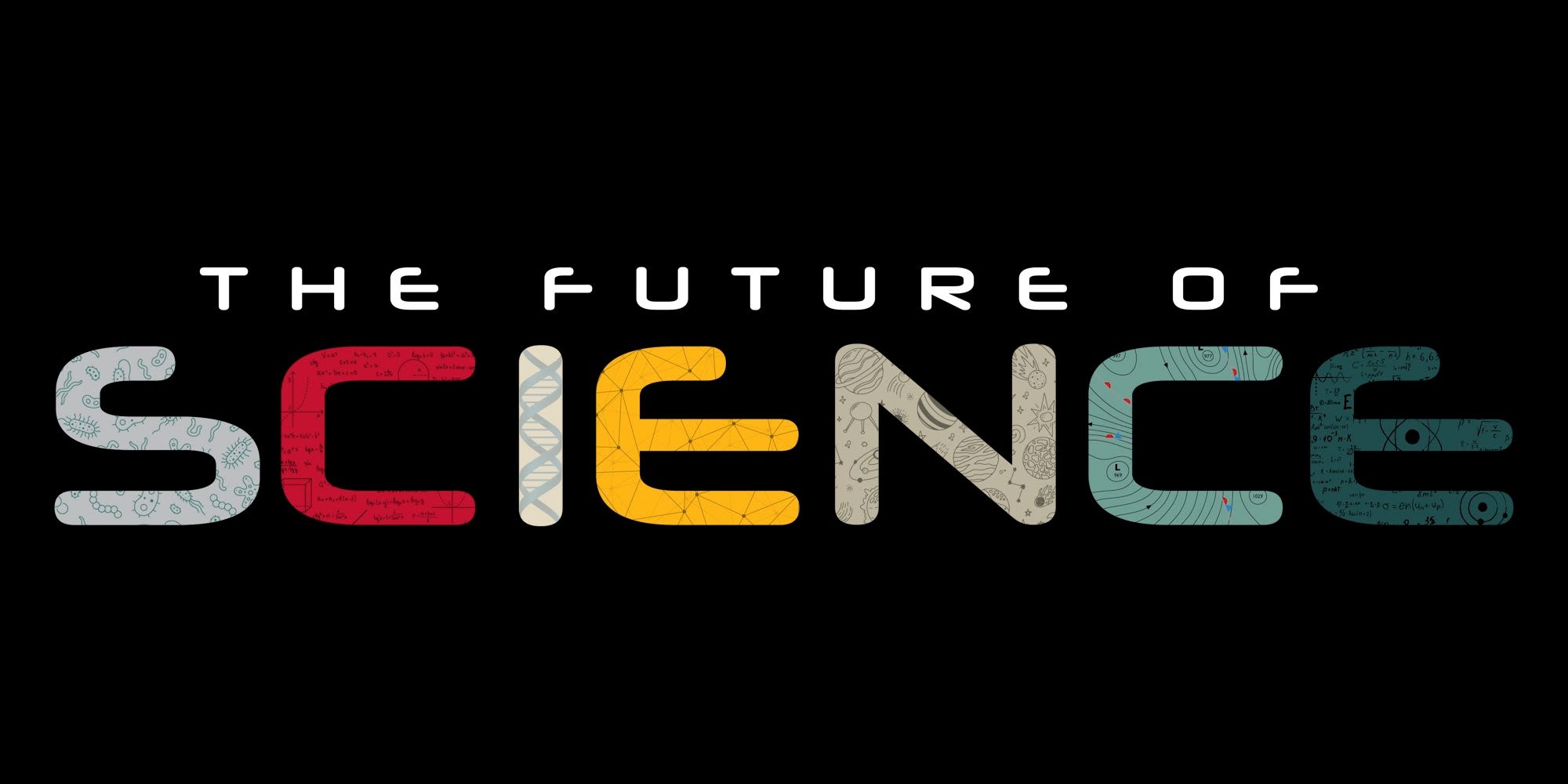
Carnegie Mellon University is bringing its expertise in artificial intelligence, automation and data science to the foundational sciences, creating the future of science.
How we do science hasn’t changed much in the last 30 years. According to Rebecca Doerge, Glen de Vries Dean of Carnegie Mellon University’s Mellon College of Science, that’s not okay. Carnegie Mellon plans to change the trajectory of the future of science.
When you look at a picture of a biology or chemistry lab from the 1990s, you’ll realize that it doesn’t look much different than a picture of a lab today. The fact is that many researchers still work at benches in their individual labs, methodically pipetting and plating, and using trial-and-error to find answers to very specific scientific questions, just as their predecessors — and predecessors’ predecessors — did.
“When you think about how much technology has changed over the last 30 to 50 years — we’ve gone from flip phones to smart phones, your parents’ wood paneled station wagon to an automated car — it’s incomprehensible how little has changed in the realm of scientific experimentation,” Doerge said. “Carnegie Mellon has an ambitious vision for science. We are going to set science on an accelerated path for the future.”
The Carnegie Mellon vision for the future of science lives at the interface of the foundational sciences and automation, artificial intelligence, machine learning and data science — all areas where Carnegie Mellon has a strong tradition of excellence and leadership.
Harnessing Data To Advance
Scientific Discovery
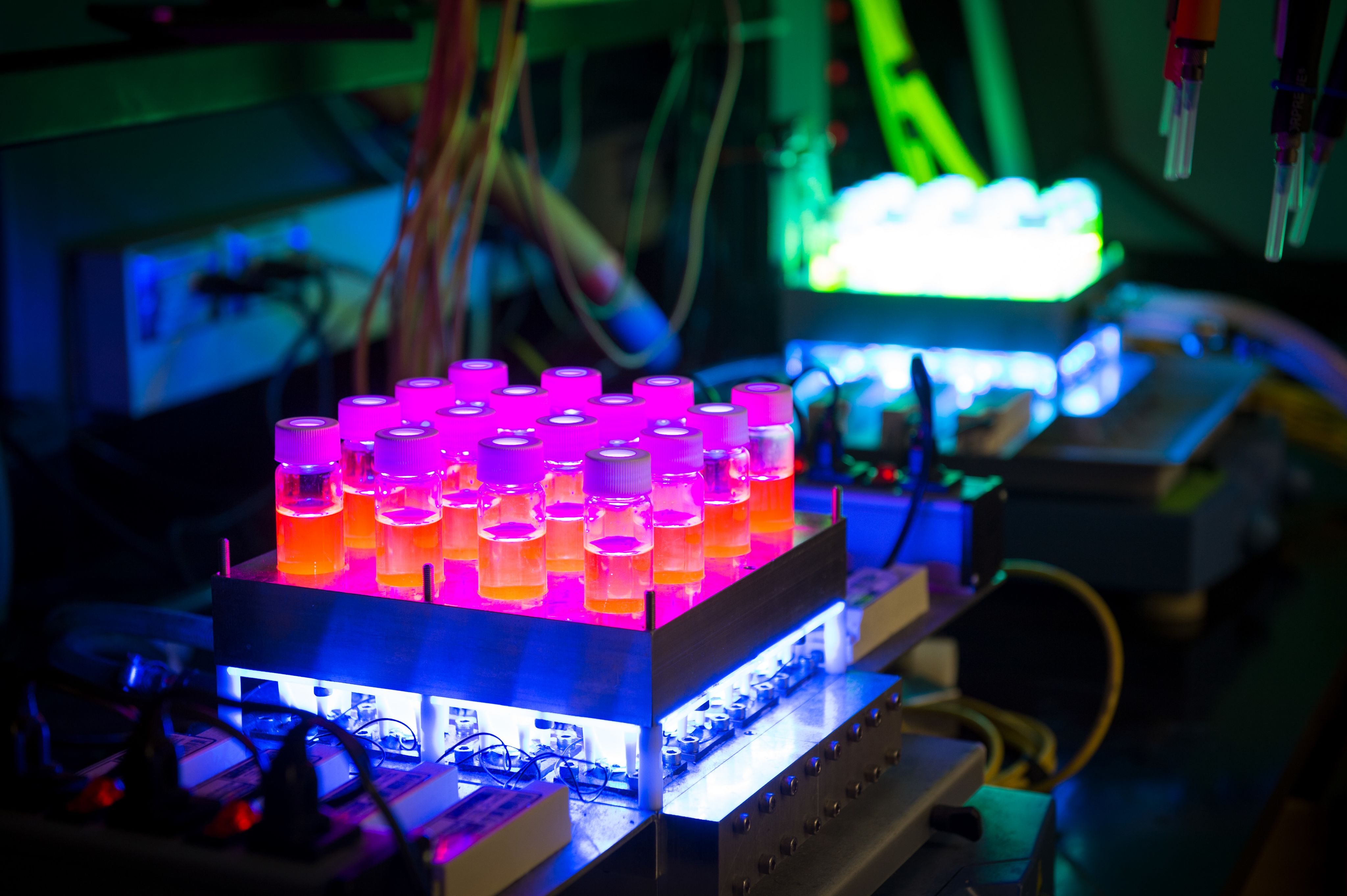
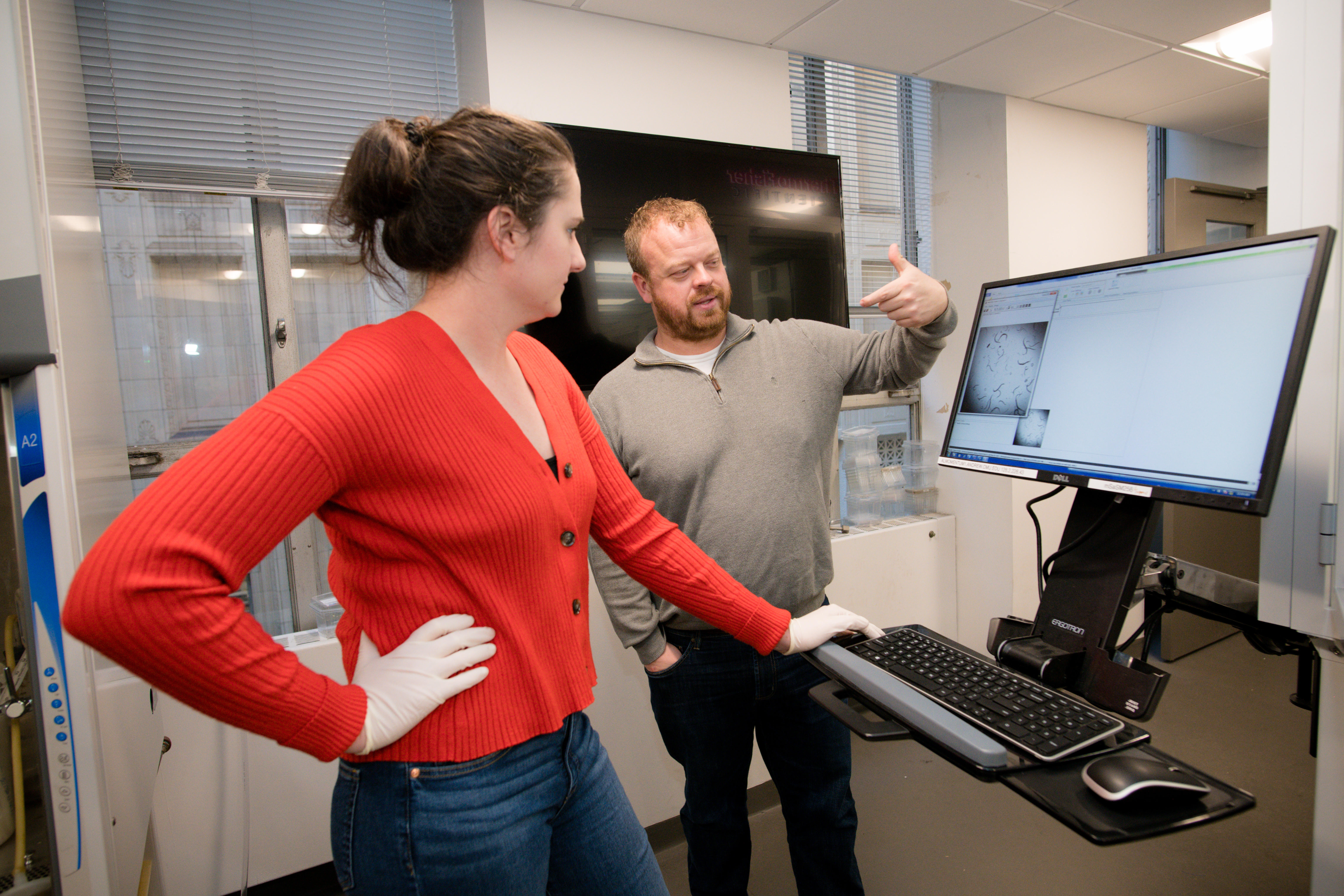
New computational technologies have resulted in an explosion of data. Think about the amount of data collected from the billions of medical tests conducted in hospitals each year or the cosmological data that represent the multitude of stars and galaxies. Data hold the answers to many of the world’s biggest and best kept secrets. The challenge is to harness the data, to find the proverbial needle in a haystack; how do researchers look for and find the answers they need?
“Carnegie Mellon is transforming scientific inquiry through interdisciplinary research and the convergence of disciplines,” Doerge said. “Computational methods, especially artificial intelligence and machine learning, are allowing us to explore vast new sources of data to accelerate discovery.”
The digitization of medical information, like radiology scans, has created a large, relatively untapped wealth of health information. Russell Schwartz, professor of biological sciences and computational biology at Carnegie Mellon, uses computational methods to analyze genomic and imaging data from tumors to determine which populations of cells make up a tumor and how they evolve as cancer progresses. Work like this will help clinicians predict which cancers are likely to be aggressive and which might respond to a specific treatment.
“What we do is a distinctly Carnegie Mellon type of cancer research,” said Schwartz, who is the head of the university’s Department of Computational Biology. “We do research with the goal of realizing the promise of what data-driven discovery and artificial intelligence can do for cancer biology and cancer treatment.”
Astrophysicists working on large scale cosmological surveys face a similar problem. The Vera C. Rubin Observatory Legacy Survey of Space and Time, which expects to make its first observation next year, will collect 60 petabytes of data over 10 years. A team led by Carnegie Mellon’s Rachel Mandelbaum and the University of Washington’s Andrew Connolly are creating software frameworks that scientists can use to extract vital information about objects in our solar system, time-varying phenomena in our galaxy and the broader universe, and cosmological mysteries such as dark energy and dark matter. This project is one of many ways Carnegie Mellon is bringing AI to physics data.
“So much of physics is data rich, whether we are collecting data from the entire night sky, observing high-energy collisions in advanced particle detectors or modeling individual proteins in a cell,” said Scott Dodelson, head of the Department of Physics at Carnegie Mellon. “AI will accelerate physics discovery for the future.”
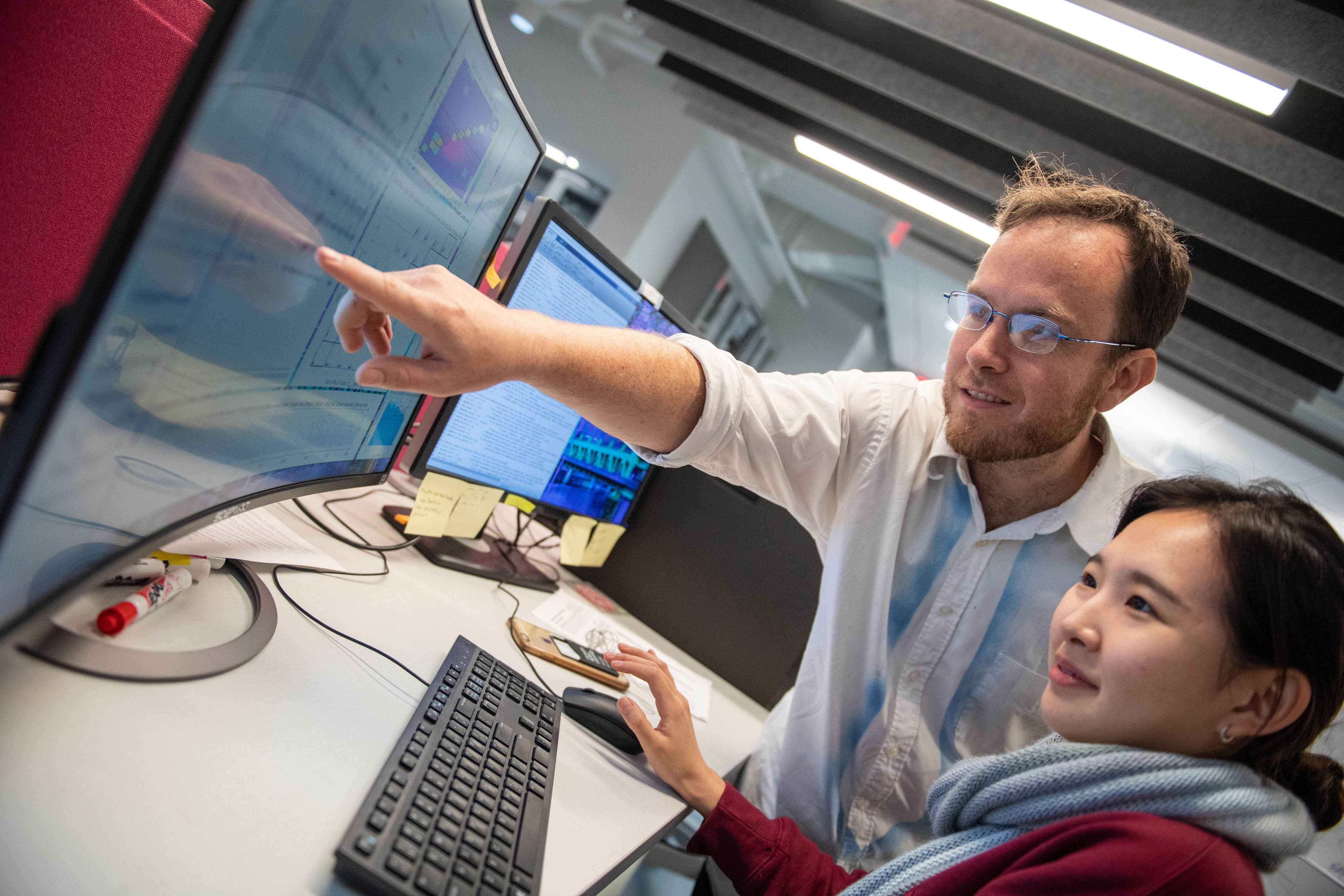
Reimagining the Physical Environment for Science
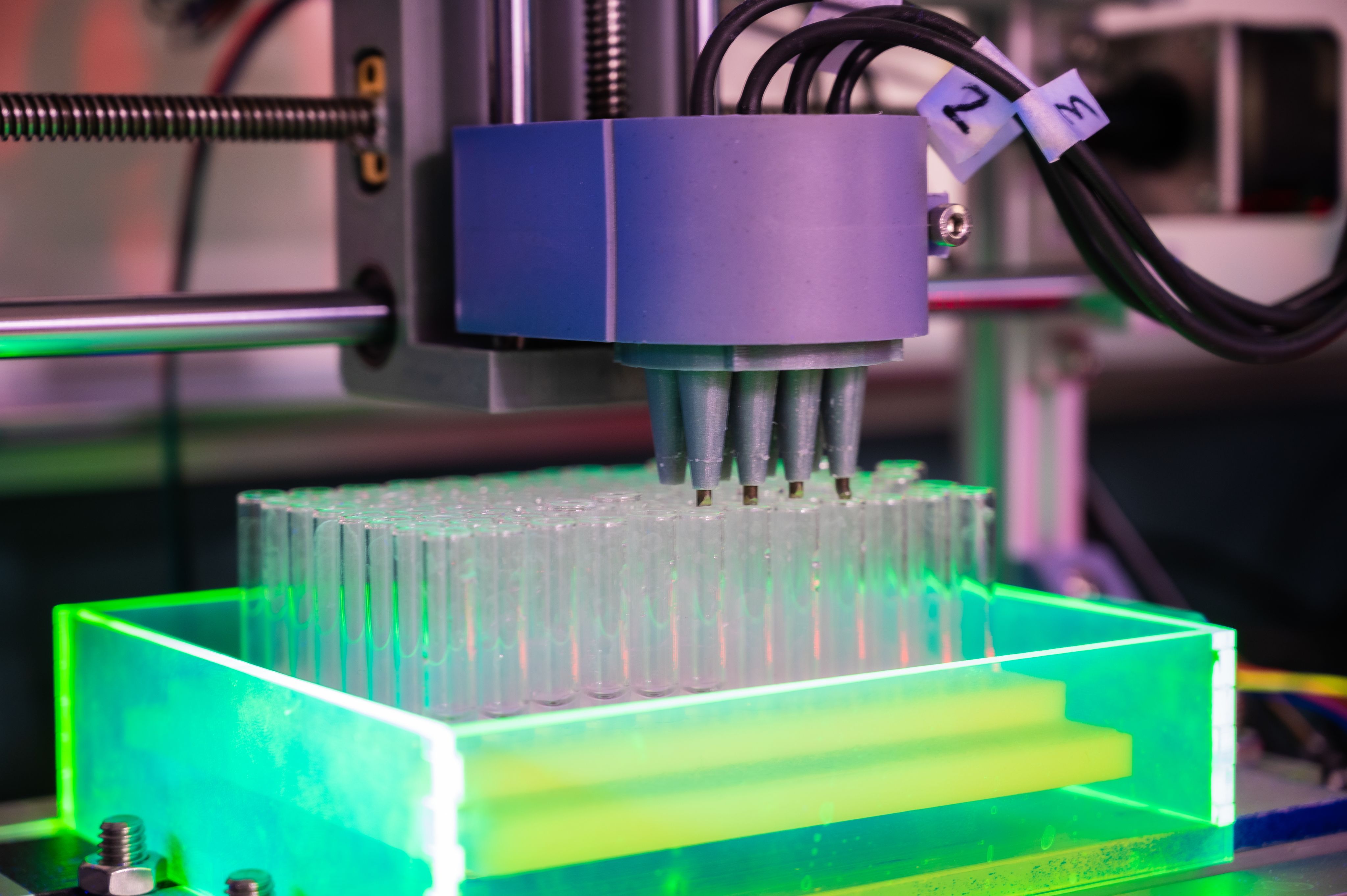
Looking into the future of science envisioned by Carnegie Mellon, the days where every researcher has their own large lab and own equipment will be over. Instead, science will be done in innovative, flexible and collaborative spaces that can be easily reconfigured to address emerging and timely questions — like a burgeoning pandemic. The Richard King Mellon Hall of Sciences, scheduled to open in 2026, will provide this flexible home for the science and scientists of the future.
But first, Carnegie Mellon will be the first university to open its own remote-controlled, automated lab for faculty, students and their collaborators to use. Built in partnership with the CMU alumni-founded Emerald Cloud Lab, the Carnegie Mellon University Cloud Lab will house more than 200 chemical and life sciences instruments. When the lab opens later this year, scientists will be able to design their experiments from their office or home — anywhere where they have access to the internet — and input the code for the experiment from their computer. Technicians at the Cloud Lab set up the experiment and robots and technicians execute the experiment efficiently. Data is sent to cloud-based servers, often within one day.
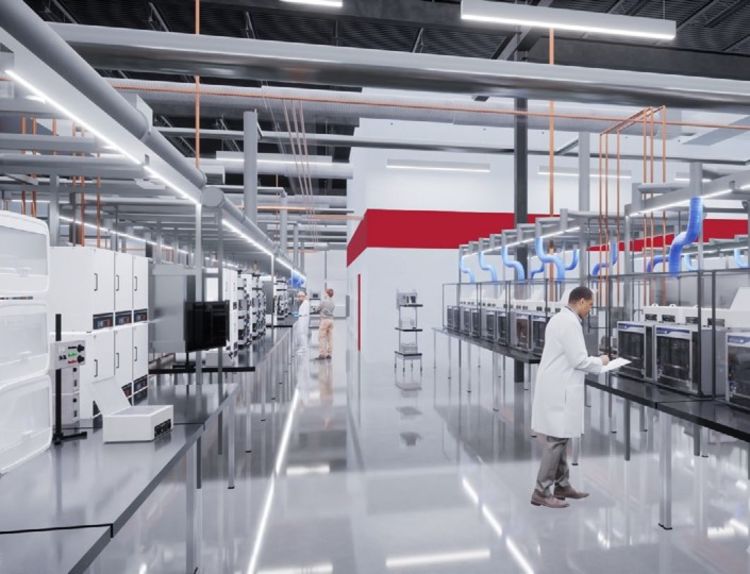
“With a Cloud Lab, doing science is no longer a matter of who has the latest, greatest piece of equipment, or who has the most accurate hands,” Doerge said. “We’re leveling the playing field.”
Pairing automated labs, like the Carnegie Mellon University Cloud Lab, with artificial intelligence will take things one step further. Carnegie Mellon chemist Olexandr Isayev and his collaborators showed that a properly trained AI model can effectively mimic an expert chemists’ skills in experimentation. In their study, they attempted to find ideal candidates for an MRI imaging agent. In a traditional lab without automation or AI, they would have had to create and test tens of thousands of monomer compositions, which would take years and likely would be impossible. Using AI and experiment automation, they were able to find the ideal candidates by testing less than 400 polymers in about two weeks of lab time.
These are just a few of the many ways Carnegie Mellon is reimagining how science across many disciplines is done for the future, creating the pathway to the discoveries of tomorrow.
“Carnegie Mellon is a world leader in artificial intelligence, machine learning, data science and foundational sciences. We are leveraging our strengths and the potential of human ingenuity to make the future of science possible,” Doerge said.
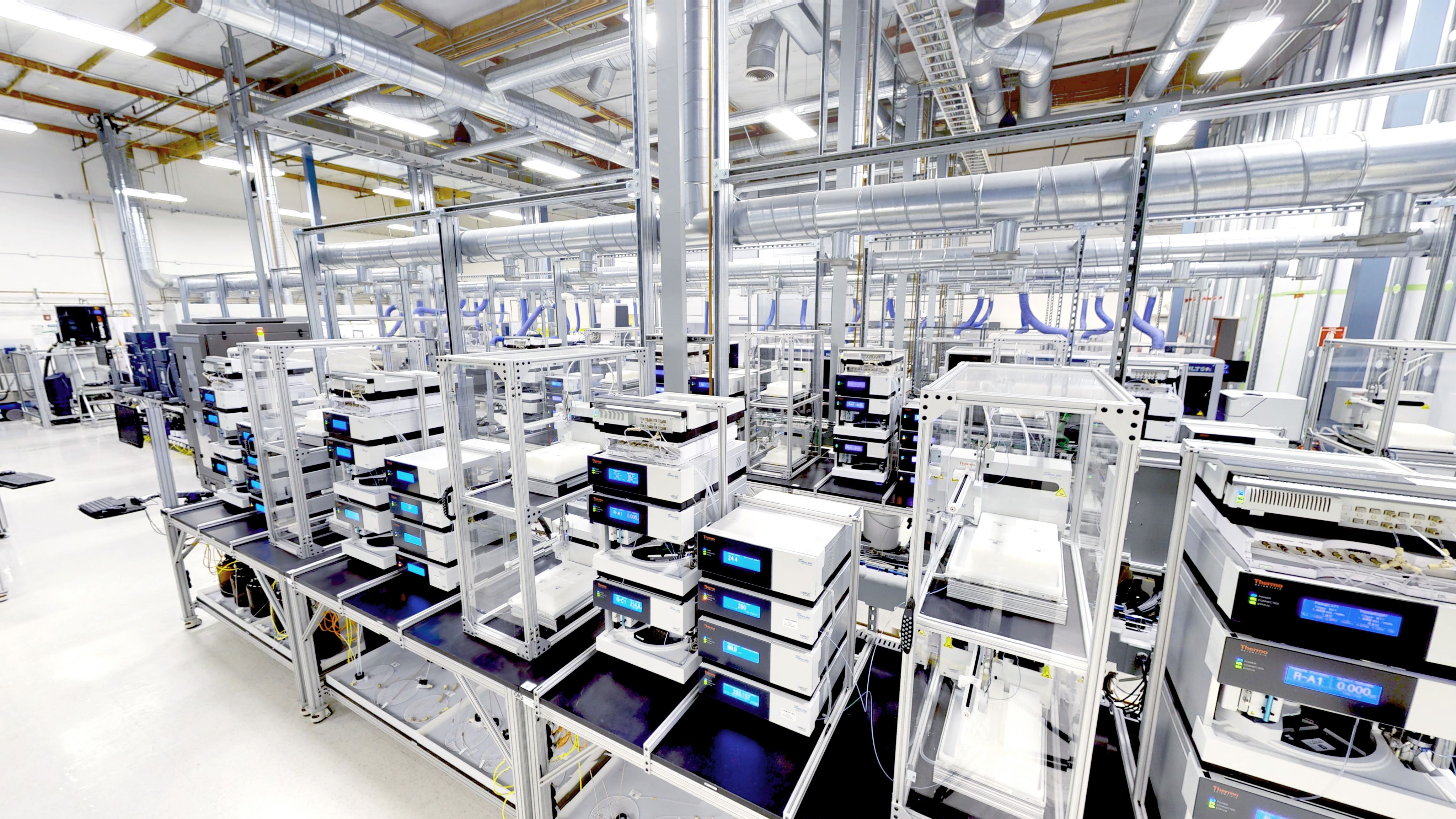

This content was paid for and created by Carnegie Mellon University. The editorial staff at The Chronicle had no role in its preparation. Find out more about paid content.


